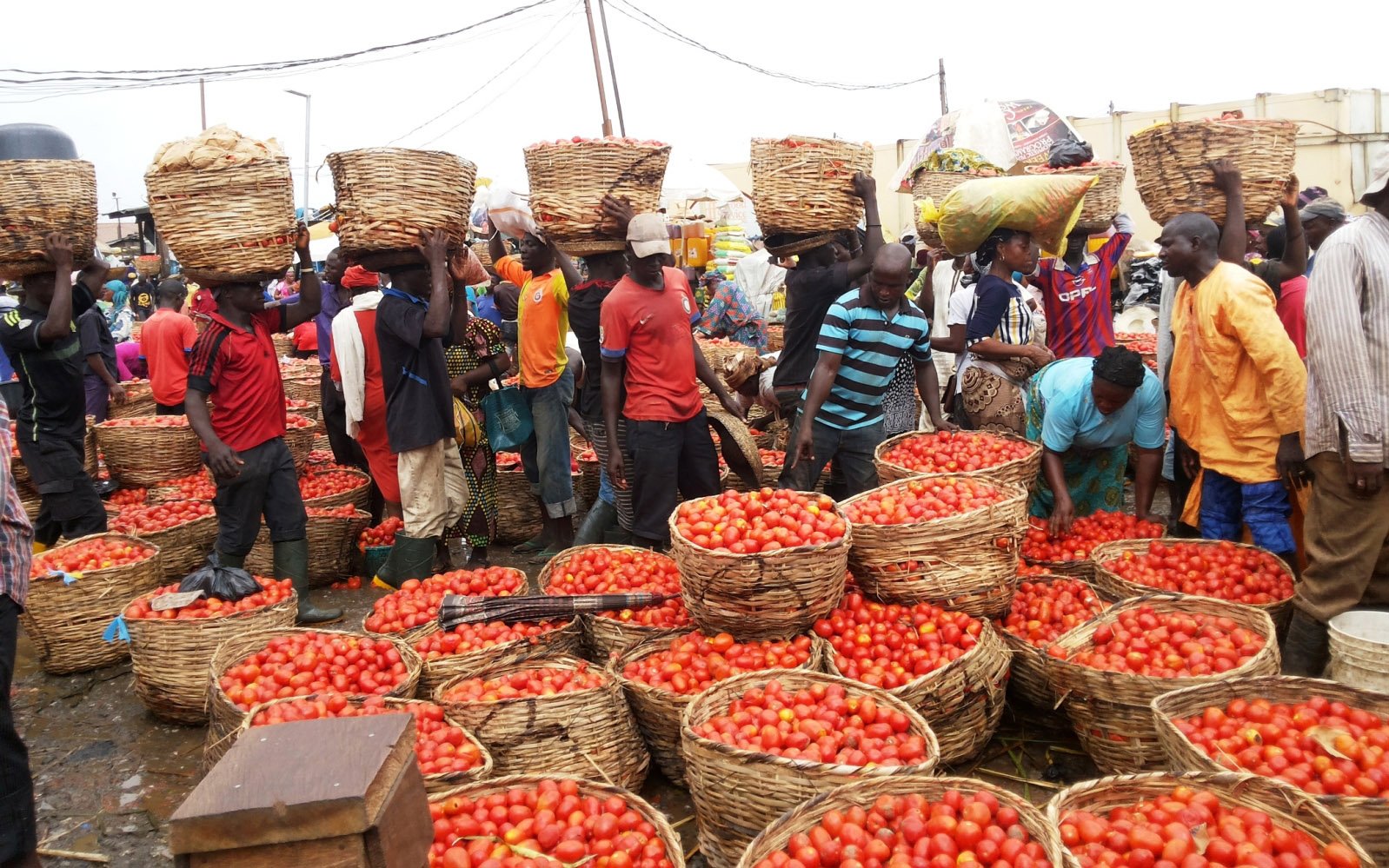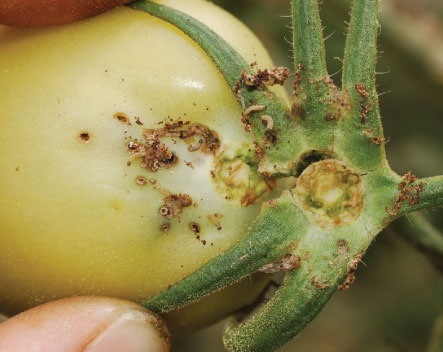The recent tomato scarcity, which has put enormous pressure on households and changed the lifestyles of many, who love good food, has been blamed on a pest called Tuta Absoluta. It has affected the economy of many northern states and has paralyzed companies like Erisco Foods and Dangote Foods. There is no doubt that this scarcity would further contribute to the contraction of our GDP this quarter.
Unfortunately, Nigerians are not asking the right questions – while some are merely complaining about how bad things are, others are blaming ‘innocent’ pests for this scarcity. I wonder if people blame mosquitos anytime they contract malaria. Unknown to some, it might even get worse.
Why is this tomato disease also called Tomato Ebola? If know the answer to this question, then, you would also know who the major culprits are.
Tomato Ebola occurred in June, 2015, just after Nigeria had the Ebola crisis. Thus, some farmers, then, who were badly hit by this strange disease christened it Ebola. At the height of this infestation, last June, the affected farmers applied all the remedies they could get from quacks but their efforts were akin to a man consulting a quack doctor. Sadly, because food prices weren’t hit then, government never really said anything about it – I didn’t hear about it. Did you?
Advertisement
To be fair to the current minister of agriculture, Chief Audu Ogbeh, he hadn’t been appointed then. However, for a country that is major producer of tomato, which is a very important vegetable just like oil is an important commodity, he should have been briefed about the 2015 disease outbreak.
Since the disease occurred last June, my instinct tells me that those pests apparently migrate towards Nigeria this season. But, typical of Nigeria, nobody said anything, the ministry never saw this threat as something that could pose danger to our food security.
To make matters worse, a company, AgroNigeria, actually convened a town hall meeting on the 9th of July, 2015 to sensitize farmers in Kano about this tomato disease- those farmers were apparently abandoned then. In the typical Nigeria way, I am not sure AgroNigeria was invited by the federal government.
Advertisement
Yes, it happens to everybody, it might have happened to you. You write a proposal informing government of an imminent danger, and they ignore you. They might start looking for you when the danger comes.
Today, what are we hearing? The government has approached Agronet Nigeria for help. The government now tells us how expensive it is to seek this help – it will cost N5 naira to treat each tomato plant in Nigeria. Maybe, if this company had been engaged since last year, probably through AgroNigeria, the solution might not have been as expensive as it is today. I wish I had shares in Agronet Nigeria!
What is actually happening now in Nigeria? It is simply that the demand for tomatoes has outweighed the supply. There are now all kind of rumours of how big companies are hoarding tomatoes.
There are also post-harvest losses in the production and distribution of tomatoes. Lack of transportation and storage (refrigeration) facilities contribute to the loss of about 50 percent of produced perishable foods, like tomatoes, in Nigeria. Data abound in the CBN and in the ministries of agriculture. These losses contribute to the scarcity.
Advertisement
And this is where Raji Fashola, SAN comes in. He is the minster responsible for power and road construction. There is no doubt that the poor condition of power supply and the bad conditions of our roads, these days, have increased these losses. Also, transportation costs have also impacted on the cost of these vegetables.
If any research is done about these losses today, it will surprise even the most vocal critic of the ministry of power and works. You need energy to refrigerate these tomatoes, at least to preserve them before they are sold. And, you need good roads to take tomatoes from the farm to the market.
Some state governments are also responsible for this crisis. We have ministries of agriculture and works in these states. States are supposed to build local roads as well. But, the buck of the blame goes to the guys at the federal level.
Now, there is an imminent food crises in Nigeria. Some states have declared states of emergency. But, I am not sure we have learnt our lessons. A similar tomato disease took Sudan many years to recover.
Advertisement
Today, there is a sugar crisis in Venezuela, and Coca-Cola has almost shut production in that country. Such shouldn’t happen in Nigeria. The minister of agriculture should do a risk assessment for other foods and cash crops in Nigeria to ascertain if there are potential dangers ahead. We do not need this kind of ‘fire-alarm’ approach in future.
As they say, the best way to treat a disease is to prevent it. We should apply more proactive methods of foreseeing and preventing diseases, especially in crops.
Advertisement
We have been mouthing diversification through agriculture, and our research agencies that are funded by government, especially the federal government, have not been empowered. Some argue that we aren’t really serious in this country. Today, a private company knows more than our agencies.
My position is simple: Fashola and Ogbeh should help us come out from this mess. One woman told me she bought tomatoes for N2000, in order to prepare a meal for her children, and she earns about N8000 monthly. When I asked her the wisdom in spending almost all your income on a vegetable, considering the fact that there were other options, she smiled and told me she wouldn’t love to spend that money on doctors. Vegetable is life – Fashola and Ogbeh over to you, Sirs.
Advertisement
Views expressed by contributors are strictly personal and not of TheCable.
2 comments








Beautiful piece
Very good article. Keep it up bro.